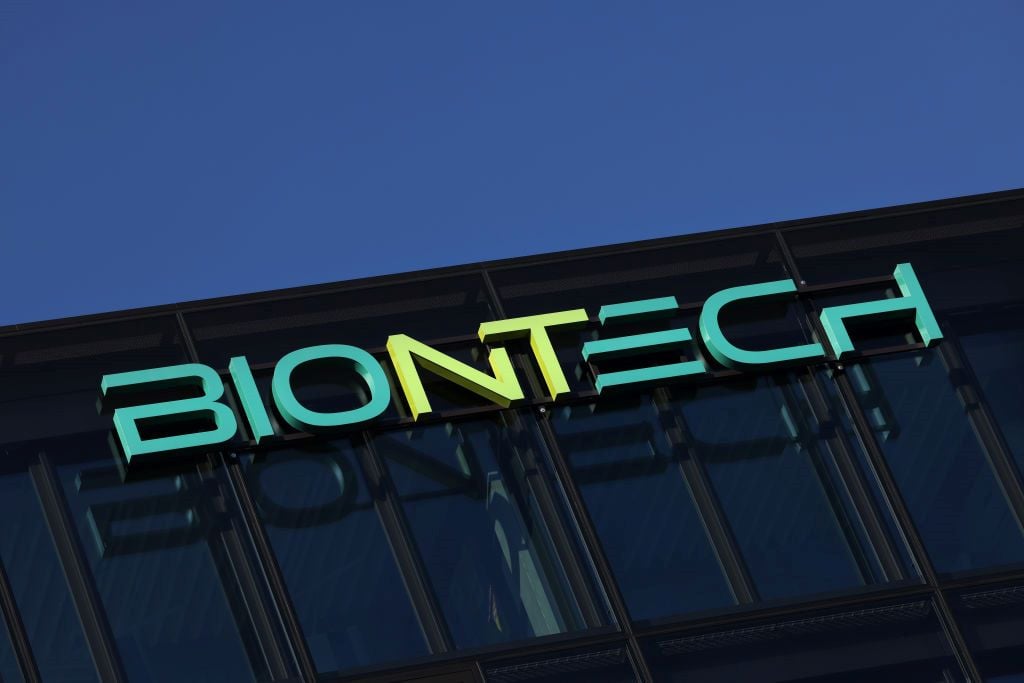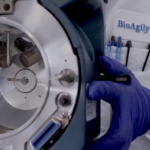BioNTech won’t proceed with further development of its BNT111 cancer vaccine candidate in a specific late-stage refractory melanoma setting, a company spokesperson told Fierce Biotech. The decision to push pause is “in line with our strategy” as BioNTech focuses on other programs from its FixVac mRNA platform, the spokesperson said.
The German drugmaker had been studying the vaccine prospect in combination with Regeneron’s checkpoint inhibitor Libtayo in a phase 2 study in certain patients with advanced melanoma. BioNTech presented results from the trial over the weekend at the 2025 European Society for Medical Oncology (ESMO) Congress in Berlin.
The trial enrolled patients with unresectable stage 3 or 4 melanoma who had previously tried a PD-1 or PD-L1 therapy, and it also weighed the effectiveness of BNT111 and Libtayo as monotherapy agents.
In the study, investigators recorded an objective response rate (ORR) of 18.1% for patients who were treated with the BNT111 and Libtayo regimen.
At a median follow-up of 15.7 months, the median amount of time that patients in the study’s BNT111-Libtayo arm survived without their disease getting worse came to 3.1 months. The regimen was associated with a 24-month progression-free survival rate of 24.9%, as well.
As for overall survival, patients who received the Libtayo-vaccine combo lived a median of 20.7 months, according to the presentation. After 24 months of follow-up, the combination regimen was associated with a survival rate of 47.8%.
The results point to “statistically significant improvement of BNT111 plus cemiplimab [versus] an assumed historical control ORR of 10% in heavily pretreated, PD-(L)1-relapsed/refractory advanced or metastatic cutaneous non-acral melanoma,” according to an ESMO presentation from lead study author Paolo Ascierto, M.D., which referred to Libtayo by its generic name.
Ascierto called the trial “positive,” noting that solo BNT111 also showed “clinical activity” and a manageable safety profile.
Despite these findings, the study looks to be the end of the road for BNT111 in the late-stage refractory melanoma setting, according to BioNTech’s spokesperson.
“In line with our strategy, we are currently not planning further clinical trials with BNT111 in this late-stage, refractory disease setting,” a company representative told Fierce Biotech over email Monday. The program’s de-prioritization was first reported by Endpoints News.
Last year, BioNTech reported a primary endpoint win from its phase 2 trial, which showed a statistically significant improvement in the response rate of the BNT111-Libtayo combo compared to historical control data. Both monotherapy arms had showed clinical activity as well, the company said at the time, leaving BioNTech and Regeneron to discuss the data with regulators as the partners weighed plans for further development.
Related
Regeneron and BioNTech have been working together on the combo prospect since 2020, aiming to overcome the checkpoint inhibitor resistance some melanoma patients experience with popular therapy options.
BNT111 comes from BioNTech’s FixVac mRNA cancer vaccine platform, which uses a fixed combination of mRNA-encoded non-mutated tumor antigens in an effort to enhance the stability of mRNA in the body. Vaccines from the platform are designed to target antigen-presenting dendritic cells (DCs) and trigger a “strong and precise innate and adaptive immune response,” according to BioNTech.
The partners in 2022 expanded their agreement to include BioNTech’s BNT116, another pillar of BioNTech’s FixVac program. BNT116 and BNT113, a third FixVac candidate that is being evaluated in a pivotal phase 2/3 study in certain patients with head and neck cancer, make up the primary focus of BioNTech’s FixVac approach, the spokesperson said.
Related
As of August, BioNTech’s development priorities revolved around mRNA cancer immunotherapies and an individualized cancer therapy program called iNeST as well as immuno-oncology molecules and antibody-drug conjugates. However, BNT111 is still listed as a phase 2 “priority program” on the company’s virtual pipeline.
A vaccine for melanoma has remained an elusive target for many drugmakers. Danish vaccine developer Evaxion recently achieved a 75% ORR for its personalized prospect, but the trial’s low enrollment made it impossible to determine statistical significance.
Moderna, for its part, is moving forward with an mRNA prospect that targets PD-L1 and IDO antigens, with a focus on melanoma patients with PD-L1 positive tumors.



